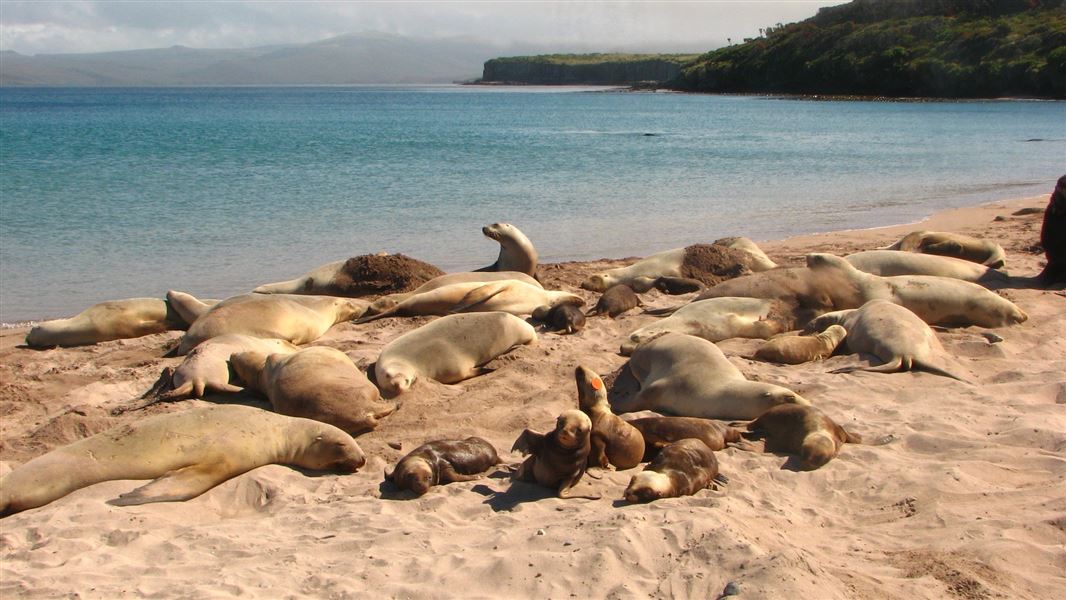
Introduction
A consultation on a range of options and recommendations for mitigating both human-induced and natural threats to New Zealand sea lions/rāpoka was run in August 2016.Consultation outcome
The consultation process resulted in the current New Zealand sea lion/rāpoka Threat Management Plan. A consultation document and supporting information was provided to stakeholders and the public.
Background
The New Zealand sea lion Threat Management Plan (TMP) was sought by the Minister of Conservation and the Minister for Primary Industries in 2014 in response in an ongoing trend of decline in sea lion pup numbers at the Auckland Islands.
The Department of Conservation (DOC) and Ministry for Primary Industries (MPI) ran a formal risk assessment process with national and international experts over the last 18 months, the results of which have informed the plan.
As well as national initiatives to help the sea lion population recover, the plan proposes several actions in the four regions where sea lions breed – the Auckland Islands, Campbell Island, Stewart Island and Otago Coast (including the Catlins).
Consultation
Over 4,900 submissions on the draft New Zealand sea lion/rāpoka Threat Management Plan were received during the consultation process.
DOC and MPI officials have considered all submissions and are currently liaising with key stakeholders over some of the management and research identified in some submissions. Officials anticipate that a decision on the full extent of the resulting Threat Management Plan will occur in early 2017.
In the interim, work on some key aspects of the Threat Management Plan, including the development of a sea lion forum and reviews of Operational Plans for some fisheries, will be underway shortly. In addition, over the coming sea lion breeding season, DOC is coordinating field research that focuses on some of the key threats.
Download the consultation document (PDF, 6,023K)
Related documents
- Background document: New Zealand sea lion/rāpoka Threat Management Plan (PDF, 3,480K)
- Review of threats to the recovery of NZ sea lions and other otariid species (PDF, 1,162K)
- Discussion paper on New Zealand sea lion pup mortality: causes and mitigation (PDF, 585K)
- Summary of the Risk Assessment of Threats to New Zealand Sea lions (PDF, 2,146K)
- Quantitative Risk Assessment of Threats to New Zealand Sea Lions (PDF, 6,719K)